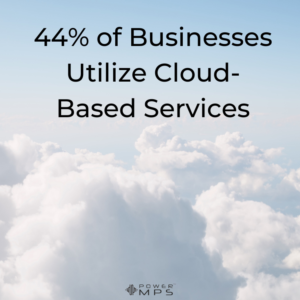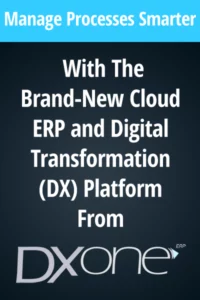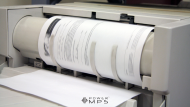A growth in mobile business communications has many people believing office printing is on the way out. Where businesses used to rely on faxes, traditional mail, and face-to-face interactions, now there are Zoom calls, email, and digital document editors.
Today’s highly skilled professionals are not just making phone calls on the go, they are using mobile devices to collaborate with their colleagues and grow their businesses. Mobile eliminates the issues surrounding different time zones and locations. It even allows highly motivated individuals to work around flexible schedules to collaborate efficiently and effectively.
But, despite a heavy reliance on mobile communications, there is one thing that continues to play a big part in aiding business collaboration – printing.
Office Printing Aids Business Collaboration
Collaboration is crucial in any business. It helps build teamwork and allows the company to operate more efficiently and effectively. Cloud- and web-based systems play a critical role in helping today’s businesses communicate, stay organized, and complete tasks.
Recent research shows that mobile devices are another essential in business communications, especially for skilled professionals. Yet, this same group continues to rely on printed materials when they need to read, make changes, or add commentary to shared documents. As a result, mobile printing volumes have increased by around twenty percent.
The office printer is beginning to serve as much more than a piece of printing hardware. Instead, it is bridging the gap between the analog and digital world. Today’s printers can accept mobile print input from practically any location, digitize physical documents for seamless sharing, and provide additional security through data encryption, firewalls, and other measures. In doing so, office printing is quickly cementing itself as a crucial component of the collaborative business process.
Cloud Printing Provides Real Business Advantages
Collaboration is not the only benefit of leveraging cloud-based printing for business. Implementing these advanced printing systems provides a range of other advantages, such as freeing up physical space in the office by eliminating the need for physically on-site print servers. As a bonus, removing print servers also conserves electricity by reducing the pieces of electronic equipment pulling energy within the office.
Another key benefit to cloud printing is its association with third-party print providers. In most cases, the software and systems required to effectively run a cloud-based printer environment require an association with printing partners such as managed print services and printer leasing companies.
These businesses specialize in providing office print technology – including printer maintenance and service. However, when it comes to cloud printing, print services providers take over the bulk of print problems, such as the help desk calls and tickets to IT for printer issues. The result is an IT help desk with more time and energy to devote to more critical aspects of the business.
In addition to managing printer issues, cloud printing providers also offer an elevated level of security and compliance standards to keep business data safe. This security includes a host of best practices including, but not limited to, data encryption, secure communications, and end-user password protection.
In the case of auditing for heavily regulated industries, cloud printing is a must-have. Cloud systems regularly track printer use by IP address, computer, employee ID, and many other factors. For some businesses, this tracking is purely to moderate supplies and provide education for employees. However, this information provides essential data for businesses that need trackable audit trails.
Meeting the Needs of a Remote and Hybrid Workforce
The difficulties of print management across a hybrid workforce can be easily balanced thanks to cloud-based printing. This networked printing system helps remove the disruptions many remote and hybrid workers experience with their current printer systems. And companies worldwide are recognizing the need to leverage cloud-based printing and communications throughout their business.
 A recent survey found that nearly half (44%) of businesses already use some cloud-based service. Another forty-three percent expect to leverage cloud services in the next two years, and cloud printing is a large part of this heavy adoption environment.
A recent survey found that nearly half (44%) of businesses already use some cloud-based service. Another forty-three percent expect to leverage cloud services in the next two years, and cloud printing is a large part of this heavy adoption environment.
Today’s cloud-based office print options include various options designed to cater to a dynamic workforce. These options include small-footprint networked machines for print-heavy employees as well as remote print job scheduling for main office printers.
Having reliable printer access is proven to improve productivity and efficiency for the remote workforce. It also streamlines printer connectivity and capabilities with services such as automatic version updates and remote driver management.
Managed Print Services Providers Make Cloud Printing for Offices Even Easier
Office printing is a crucial aspect of today’s collaborative business environments. And, with its laundry list of benefits, including advanced security, higher compatibility, and ease of use, cloud-based office printing services are an essential part of any growing business.
Third-party cloud printing providers such as managed print services and printer leasing are the perfect partners to help businesses leverage office printing across their company. Whether it is a remote work, hybrid office, or traditional office environment, the expertise office print partners bring to the table can help any company optimize their print setup to meet the needs of employees, IT, and management.







